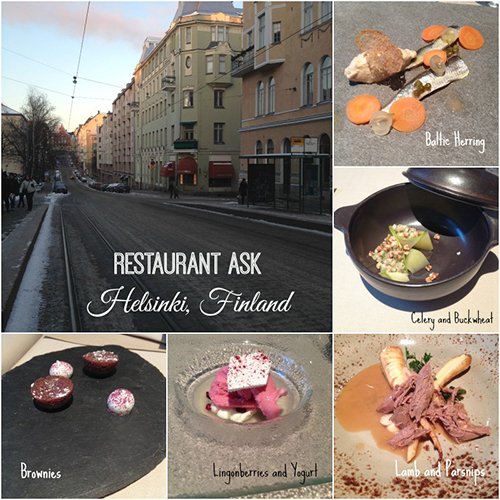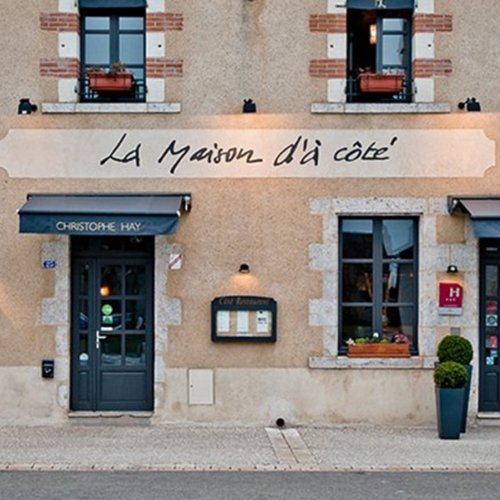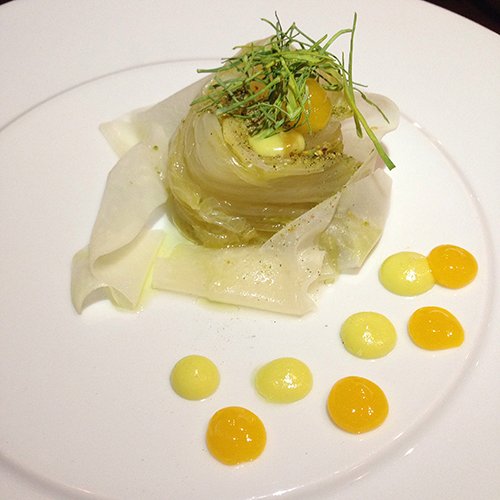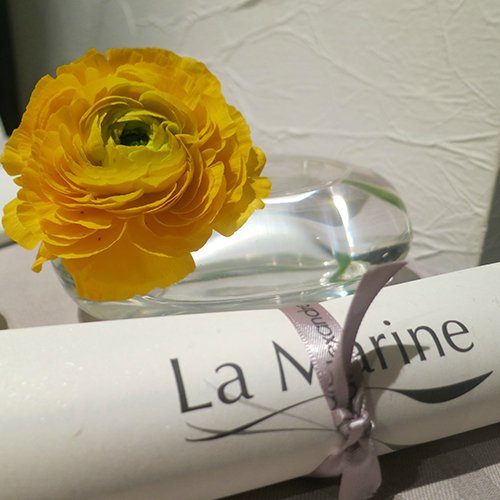- #Creativity
- #Environment
- #Finland
- #Flowers
- #Local
- #Nature
- #Organic
- #Poitou
- #Producers
- #Season
- #Sustainable
Chef David Royer spent 10 years in Finland, a country that many consider a model for environment protection and well-being. This was an inspiring experience, for his cooking as well as for his commitment to nature. He came back to France with a desire to always respect the seasons, the local products that come with them, and the producers who provide these. Thus it was perfectly natural for him to work at ‘Les Orangeries’, a hotel in Poitou that emphasizes wellness and sustainability, under the initiative of owner Olivia Gautier. His cooking is big on creativity, with ingredients from local, organic vegetable gardens. He wants to respect nature, to work closely with producers and farmers, to favour local ingredients, to share his passion for cooking, to create every day, and to please diners!

After training in Brittany and in Alsace, David Royer decided he had to learn English… and moved to Scotland, where he worked at Balmoral Hotel’s one- Michelin-star restaurant, in Edimburgh. He then went to England, to work alongside Michelin-starred chef Anthony Demetre, in London. He later moved to Finland, after meeting his Finnish wife.
Finland:
The European country with the most forests, on the Baltic Sea, with over 3,000 lakes and countless islands.
A very low population density: 18 inhabitants per sq km, when France has 98 and
England 422.
A country with markedly different seasons, which makes it necessary to have a specific approach to nature, and to patiently wait for products.
An inspiration for Chef David Royer, who lived there for 10 years. When he came back to France, in 2011, he brought with him a « local cuisine, based on seasons and big on sustainability. » And for this he uses and highlights the products from the region he settled in: Poitou, in the West of France.
A cuisine that follows the seasons and works with local providers
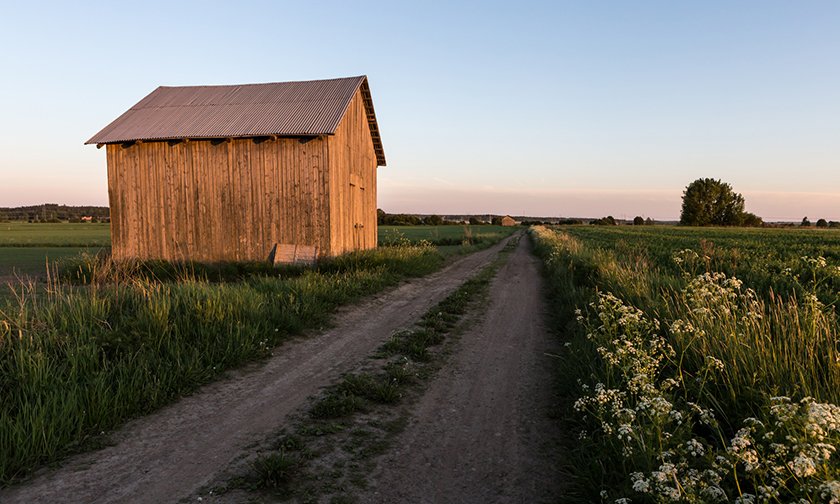
Locavorism is defined as the choice of ingredients coming from up to 300 km away.
Restaurant ‘Les Orangeries’, however, limits this range to an average of 40 km.
Finding the right ingredients locally takes time, of course, and it implies hunting for the right suppliers. But it has its reward: countless encounters with colourful characters, the pleasures of discovering their passions and life stories and little secrets, the satisfaction of locating the perfect ingredients. « To care passionately about the products, and to showcase the producers’ talent » is David Royer’s motto.
Among the Chef’s many providers is the AMAP (Association pour le Maintien d’une Agriculture Paysanne – peasants for the preservation of small-scale farming) of Montmorillon. « This close partnership between the farm and consumers generates around 200 baskets every week, with exact numbers and contents depending on the weather. » In exchange for a fair price, this system offers the farmer more stability and the possibility of planning ahead and sustaining his activity, and the Chef gets fresh, local, in-season produce.
David Royer also works with La Ferme de la Fayauderie, a farm in Lussac-les- Châteaux, close to restaurant ‘Les Orangeries.’ It has remained in the Clerc family and has been passed on from mother to daughter since 1907. It provides the Chef with dairy products, eggs, lamb, chicken and guinea fowl. «The emphasis is on short range at this 110-hectare (272-acre) farm. 50 hectares (124 acres) provide cereals for the cattle, and 60 (148 acres) are meadowland and pastures for the cows, sheep and poultry.»
For ducks, David Royer has chosen Maison Mitteault, in Poitou. « The duck breeders control the whole production process, from feed to table, » i.e. from cereal farming to feed making, to duck selecting and free-range breeding, to slaughtering and making meat and foie gras. Their foies gras, magrets (duck breast filets) and other high-end products are sought after by Michelin-starred Chefs such as Bras and Marcon.
Organic bread, natural wine… and edible flowers
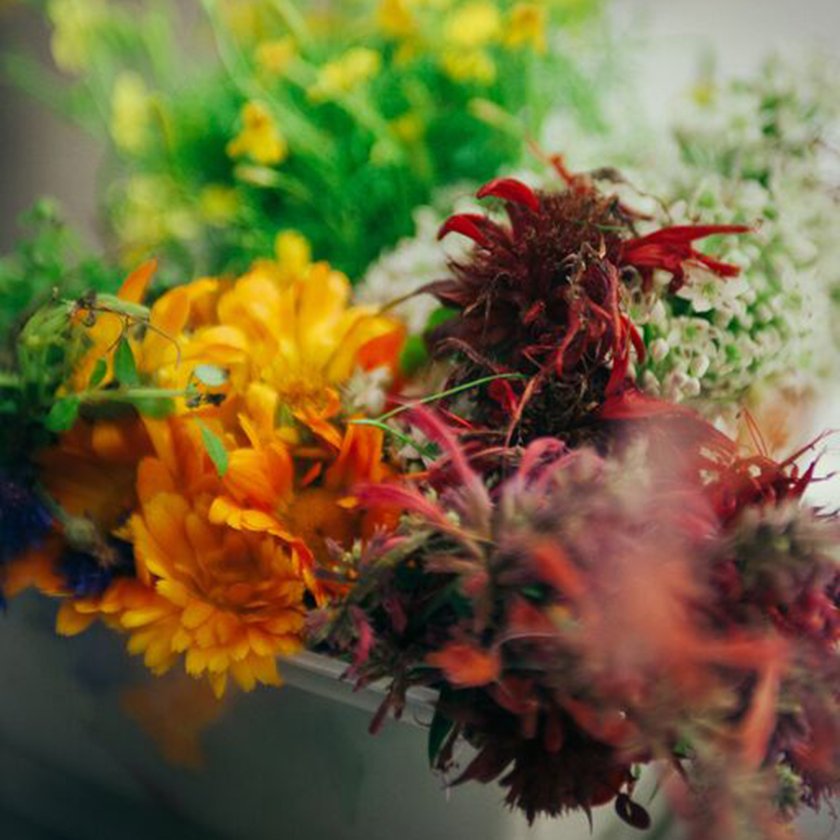
On every table at ‘Les Orangeries’, there is bread of course. But not any bread… It is made by Michel Perrin, a peasant / baker who works in Saulgé, 14 km from the restaurant. An organic farmer, Michel Perrin grows his own wheat, that he grinds himself, to make his own bread, in the family farm’s old oven. He even makes his own yeast! All he has to buy is salt.
« This bread is a far cry from the current standards that make so many people gluten- intolerant, and it draws crowds to the local markets where it is sold. » And you can also find it in the bread baskets at ‘Les Orangeries’, from breakfast to dinner.
The wine list too has been put together with care and passion. The Chef and the restaurant’s owner,Olivia Gautier, pay great attention to their choices of natural wines. « These wines allow a specific territory to express its peculiarities, with grapes that are grown organically and without using any pesticides, and then are hand picked and turned into wine without any chemicals. »
They meet passionate wine growers from all over France at the Salon des Vins naturels (Natural Wine Fair) of Saint Julien l’Ars (30 km from ‘Les Orangeries’). From these encounters a wine list is created, with wines that perfectly match the Chef’s cuisine.
David Royer also works closely with Nicole Seiler, of “Le Jardin des Possibles” in Persac (8km). She provides him with edible flowers and plants. Nicole Seiler has adopted for many years a sustainable and locavore approach. On 2,000 sqm (0.5 acre) she grows over thirty different organic plants and flowers. Her dried leaves,
flower preserves, flower extracts, syrups and herbal teas add colour and taste to the
dishes at ‘Les Orangeries’.
Playfullness and creativity are on the menu
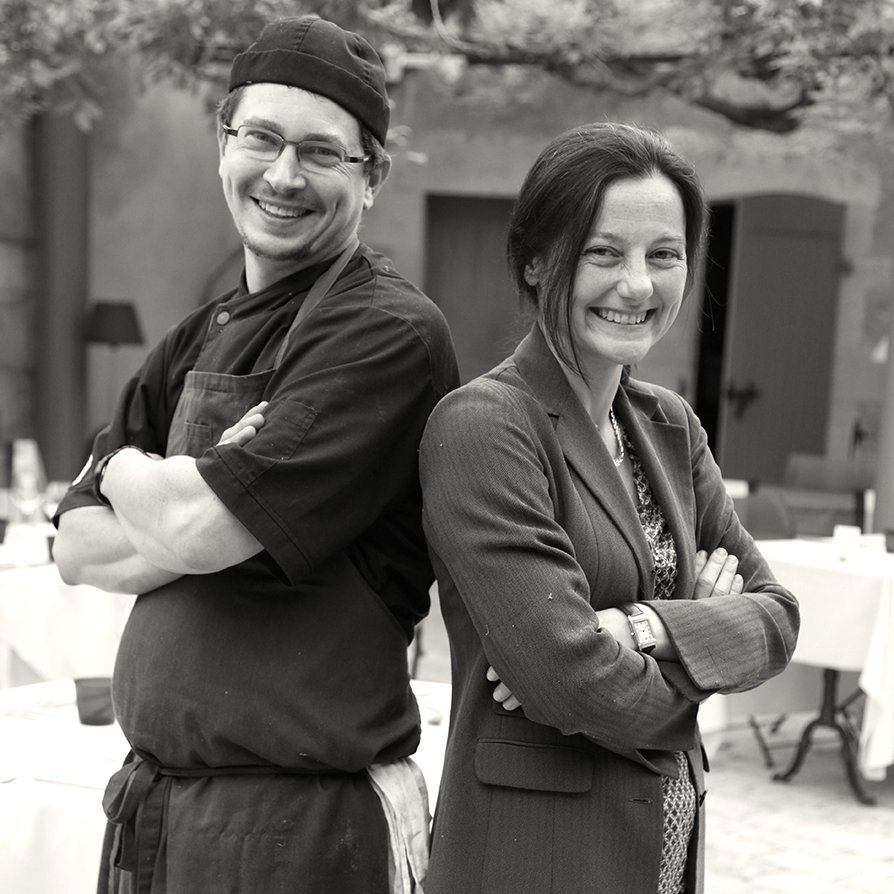
Besides these many providers, the Chef can use 3 gardens on the ‘Orangeries’
grounds.
« A small garden, for flowers and herbs », « a larger one, for season vegetables such as beetroot, courgettes, carrots, squash, leek, tomatoes, etc, » and an orchard with cherry, apple and pear trees. In these gardens, that have been certified organic since
2007, Olivia Gautier also experiments with permaculture.
All this means more time taken from a very busy schedule, but it also gives « a unique opportunity to help our teams discover nature and its slow pace, the effects of weather events, etc. These gardens are educational. We show how to grow vegetables, we see them grow, and we pick them together. »
When questioned about the constraints imposed by his choice to depend on nature and weather, Chef David Royer talks of « anticipating, thinking ahead, being creative, and always coming up with new ideas! »
He truly enjoys what he takes as a challenge: to find locally the products he might be in need of to create his dishes. Everything can be found within a short distance, even the most exotic flavours!
« Feel like a curry? Enter curry herb, an everlasting plant that grows in the area ; it looks a bit like lavender with silver grey leaves, but smells strongly of curry. It is the perfect substitute to use in fish or poultry dishes. »
Feel like a dessert with exotic flavour? Nicole of “Le Jardin des Possibles” can provide the Chef with pineapple sage, whose sweet smell reminds of the fruit, or rose geranium which smells like roses…
Local products too can make you travel, with zero carbon footprint, and no jet lag!
Since 2013, the restaurant and “Le Jardin des Possibles” have been working on « R
& D around plants and greens, with for instance the creation of hydrolats (water- distilled plant extracts) and the use of organic flower waters in the kitchen. »
Committed to promoting sustainable cuisine

As it operates within the first hotel in France to have been awarded the European ecolabel for tourist establishments (in 2006), David Royer’s restaurant seeks certifications and labels that highlight its environmental commitment.
The Chef also wants « to be involved with organisations in order to share his expertise and his ideals, and to discuss best practices with other professionals.»
This is why, at the same time it was awarded the Maître restaurateur label in 2012, the restaurant asked to be audited by the meticulous SRA (Sustainable Restaurant Association). The British-born international organisation gathers 5,000 restaurants worldwide that take action to lower their environmental impact. ‘Les Orangeries’ has
held SRA’s « best sustainable restaurant » label since 2014 – international recognition, and an encouragement to keep trying harder.
In addition, David Royer is a founding member of “L’R durable” (R for air, durable for sustainable), « an association promoting to a more responsible cuisine. » It gathers members of the restaurant industry to share good values and practices with as many as possible.
Committing to this cause was the right thing to do for David Royer. The right thing for his everyday work in the restaurant. But also « the right thing to do to share his ideals and help his peers, who are ever more eager to find meaning and ethics in their work. »
As Chef David Royer likes to say, «seeds are the symbol of passing something on to someone else. To sow is to show an example… »
- 1996 : Met his wife in Scotland
- 2002 : Got married in Finland – 2 children
- 2011 : Came to ‘Les Orangeries’, in Lussac – Poitou, France
- 2012 : Was awarded the Maître-Restaurateur certification
- 2014 : SRA ‘Sustainable Restaurant’ international prize
- 2016 : ‘Young Talent’ award by Gault & Millau restaurant guide

Find the recipe


